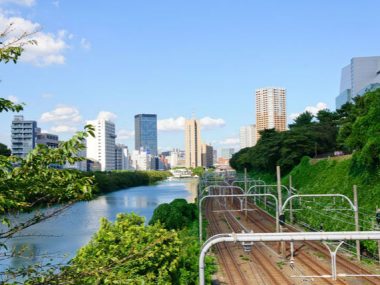When it comes to investing in real estate, it can be difficult to choose between urban and rural areas. In this article, we will discuss the pros and cons of urban versus rural areas from the perspectives of yield, rental demand and future asset value. We will also discuss rural areas with a high demand for rental housing.
Area selection is an important decision when investing in real estate. Even if the property is the same, if the area is different, there will be a big difference in the occupancy rate and the rental price. In real estate investment, there are many factors to help the investor when choosing a property, but area selection is one of the most important.
When choosing the location of your next real estate investment, it is crucial to take a broad view of many criteria when making a decision. Your comprehensive judgment should include various determining factors including yield, lease demand and future asset value.
Real estate areas are roughly divided into urban and rural areas. Understand the features, advantages and disadvantages of each in order to choose the property that best suits you.
Advantages and disadvantages of urban areas and rural areas in terms of yield and rental demand
The advantage of real estate in the centre of Tokyo is that the demand for rent is steady. Although there are nationwide concerns about vacancy risks due to population decline in Japan, this is mainly isolated to rural areas. Meanwhile, renters continue to flow into central Tokyo and we can expect this demand to remain consistent in the future.
The disadvantage of real estate in the city centre is that the yield is low. Real estate in the centre of Tokyo demands higher rental prices than in the countryside, which might suggest that earning a profit would be easy. However, since the purchase price of the real estate itself is higher, the profit margin will be smaller.
City centre real estate investment is the best way to avoid the dreaded vacancy risk, but you should consider the purchase price and yield before choosing a property.
The advantage of rural real estate is that the yield is higher compared to real estate in the city centre because land prices are relatively cheap. Of course, the rent will be lower, but the difference between that and the purchase price will be greater. This low purchase price may offer a safe starting point for beginners to real estate investment and salaried workers who invest in real estate as a side job.
The downside of local real estate is that the demand is lower making the vacancy risk higher compared to the city centre. A common reason for failure in real estate investment is the inability to find tenants for a newly purchased property with mounting costs for advertising and repairs.
If you are investing in rural real estate, it is important to identify properties with low vacancy risk. Even in rural areas, there are locales which have higher rental demand than others. For example, if it’s an ordinance-designated city or a local capital, you can expect a reasonable demand for rent. In addition, compact cities with commercial and administrative facilities offer high rental demand. In recent years, compact cities have become particularly popular amongst renters because of their convenience for the community.
Whether you choose a property in the centre of the city or in the countryside depends on personal preference and the properties on offer. But by understanding the general characteristics, advantages and disadvantages of each locale, you can begin to narrow down your options.
Future asset value
As well as yield and rental demand, it is important to select the area in which you are investing with consideration for the future asset value. For example, a property in the centre of Tokyo that has a lot of disadvantages such as high purchase price and low yield offers one big advantage when you come to sell it. Compared to local real estate, it is said that the asset value of real estate in the centre of Tokyo is less likely to fall. Even if the house is a little old, careful and regular maintenance will mean you will almost certainly find a buyer. In the centre of the city, few sellers have found they are unable to offload their property.
When choosing a property in a rural area, you need to consider the future asset value. Check the age of the building at the time of purchase, understand the location’s convenience with regards to local amenities and learn about regional demographics. But most importantly, let it go before it becomes difficult to sell. In real estate investment, it is not only stable earnings but also exit strategies that count.
You should always choose a property that fits in with your future plans, whether you sell it at the right time or hand it over to your child as an inheritance.







